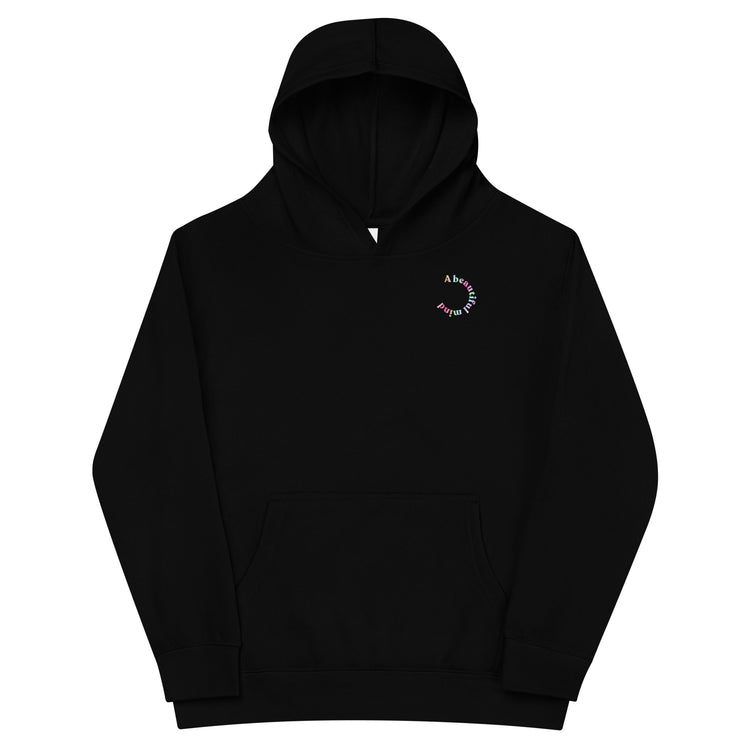AMBIV Collective is a social impact agency with a driving force dedicated to empowering disability and neurodivergent communities through a potent blend of research-driven initiatives and dynamic events. Our organization stands at the crossroads of advocacy, innovation, and inclusion, fueled by a vision to dismantle barriers and amplify the voices of underrepresented communities. We are committed to spotlighting disabled and neurodivergent individuals, seeking to increase representation and diversify narratives within society. Through our meticulously crafted events and research efforts, we delve deep into the cultural nuances that intersect with disability and neurodivergence, striving to shed light on often overlooked perspectives and experiences.
At JuneAdaptive.com, we believe in empowering people who live with disabilities. What do you think is the best way to empower your community?
We believe the best way to empower the disability community is through a combination of self-advocacy empowerment and cultural competence in education and awareness efforts. By providing resources and training that specifically cater to individuals with disabilities, we can equip the community with the tools and knowledge needed to self-advocate effectively, navigate complex systems, and assert their rights confidently. This not only fosters a sense of autonomy and independence but also ensures the disability community is represented and respected.
It's also crucial to approach education and awareness initiatives with cultural sensitivity and awareness. This involves tailoring outreach efforts, storytelling, and educational programs to resonate with diverse cultural backgrounds within the disability community. By incorporating cultural nuances and perspectives into these initiatives, we can break down barriers, reduce stigma, and promote empathy among the broader public.
What motivated you to focus on making resources accessible?
We've observed a concerning trend where individuals, despite grappling with various challenges, remain unaware of the plethora of resources available to support them. This lack of awareness often stems from insufficient promotion or outreach efforts, leaving individuals navigating their struggles alone. Recognizing this gap, our mission is to bridge the divide by not only increasing awareness of available resources but also alleviating the fear of the unknown that prevents many from seeking help.
Our approach involves curating high-quality, culturally informed resources derived directly from our research efforts. By delving into the unique experiences and needs of diverse cultural backgrounds, we aim to develop resources that resonate deeply with individuals, fostering a sense of connection and empowerment. Through our initiatives, we aspire to empower individuals to overcome barriers and access the support they need to thrive in their journey toward wellness and fulfillment.

What are the major challenges people encounter in accessing resources?
The major challenges people encounter in accessing resources stem from a variety of factors that collectively hinder their ability to seek assistance effectively. Firstly, there is often a pervasive lack of awareness about available support services, leaving individuals to navigate their struggles without knowing where to turn for help. This lack of awareness is compounded by stereotypes and stigma surrounding disability and mental health, which cultivate a culture of reluctance to seek assistance and perpetuate feelings of isolation among affected individuals. The absence of culturally informed resources exacerbates these challenges, making it difficult for diverse communities to find solutions that resonate with their unique backgrounds and experiences. Financial barriers, geographic disparities, and language barriers further compound the issue, creating additional hurdles for marginalized populations seeking essential services and resources.
At the core of these challenges lies a lack of credibility or trust in available resources, driven by social prejudices, biases, and cultural norms that discourage individuals from seeking support. Addressing these obstacles requires concerted efforts to build trust, reduce stigma, and ensure that resources are culturally sensitive and relevant to meet the diverse needs of communities.
What misconceptions or barriers impact the availability of resources?
Accessing resources, especially for individuals with disabilities and those facing mental health challenges, can be quite challenging due to various barriers. One significant obstacle is the lack of awareness about available resources. Many individuals may not even realize that support services or assistance programs exist, leaving them to struggle unnecessarily without access to help.
Stereotypes and stigma surrounding disability and mental health also contribute to the difficulty in accessing resources. These societal attitudes create a culture of reluctance to seek help or utilize available resources, as individuals fear judgment or discrimination. This perpetuates feelings of isolation and exacerbates their challenges.
Moreover, the lack of culturally informed resources adds to the issue, making it hard for diverse communities to find solutions that resonate with their unique backgrounds and experiences. When resources don't reflect the cultural nuances and values of various groups, individuals may feel alienated or disengaged, further deterring them from seeking assistance.
Financial barriers pose another significant challenge, as many essential services and resources come with high costs that are prohibitive for marginalized populations. Additionally, geographic disparities contribute to unequal access, with resources often concentrated in urban areas, leaving rural or remote communities underserved.
Language barriers further exacerbate the problem, particularly for individuals with limited proficiency in the dominant language of their region. Without adequate translation or interpretation services, vital information and support remain inaccessible to those who need it most.
Addressing these barriers requires a multifaceted approach that involves improving awareness, combating stigma, diversifying resources, and ensuring inclusivity in service delivery. By tackling these challenges head-on, we can create a more equitable landscape where individuals of all backgrounds have access to the support they need to thrive.
How can technology improve resource access for people?
The development of accessible websites plays a pivotal role in ensuring access to online resources for individuals with disabilities. Features such as screen reader compatibility and adjustable font sizes cater to diverse needs, allowing those with visual impairments or other disabilities to navigate online content with ease and confidence.
Virtual support services and telehealth solutions have transformed the landscape of healthcare and mental health support. By leveraging video conferencing platforms, individuals can connect with mental health professionals and medical practitioners from the comfort of their homes, eliminating the need for physical visits to clinics or offices. This breakthrough in telehealth not only breaks down geographical barriers but also enhances access to critical healthcare services, particularly for people living in remote areas or those with mobility limitations.
Additionally, the integration of AI assistants may further enhance accessibility by providing immediate responses to queries and guiding users to relevant resources and information. These assistants can serve as virtual guides, offering personalized support and assistance tailored to the individual's needs.
What do you see as the most critical areas for enhancing equitable access to resources?
Improving equitable access to resources involves focusing on key areas to ensure everyone can benefit. Firstly, it's vital to promote inclusivity by celebrating diversity in media, politics, and workplaces. By highlighting the achievements of individuals with disabilities, we foster a sense of belonging and acceptance. Additionally, we must ensure that resources are culturally competent, and resonate with diverse backgrounds within the disability community.
It is also essential in making resources accessible to all. This means incorporating features like screen readers and captions to ensure content is usable by people with disabilities. Creating culturally relevant resources that reflect different experiences and perspectives further enhances accessibility.
Top 3 products from the June Adaptive Inclusive Threads collection? and why?

Embrace the Stripe Hoodie (Uniqueness)

A Beautiful Mind Hoodie

Imperfectly Perfect Hoodie
These hoodies, adorned with phrases like "a beautiful mind" and "imperfectly perfect," embody powerful messages of self-affirmation and acceptance. By promoting the beauty of individuality and embracing imperfections, they serve as symbols of empowerment and advocacy, particularly for those with disabilities and neurodivergence. Through inclusive designs and uplifting messages, these hoodies challenge societal norms and celebrate the uniqueness of each individual. They encourage kids to embrace their differences proudly, fostering a culture of acceptance and inclusivity while dismantling negative perceptions. These pieces carry the transformative power of positive representation, sparking important conversations and promoting self-love and acceptance. By donning these hoodies, kids not only express their unique identities but also champion the beauty found in diversity. These hoodies challenge conventional notions by redefining societal standards and promoting a more inclusive narrative surrounding disability and neurodivergence. They spark important conversations and inspire others to embrace their differences, fostering a community where all individuals feel seen, heard, and celebrated for who they are.

Follow AMBIV Collective's journey on:
Instagram - @ambivcollective
Website - ambivcollective.com
LinkedIn - AMBIV Collective



















